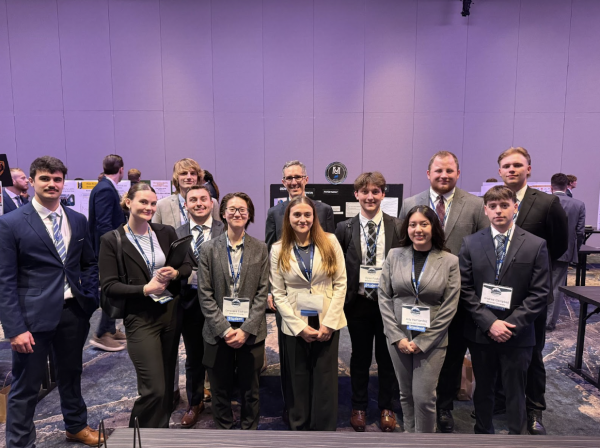How to Stay Healthy on Moravian College’s Campus
One of the first things you hear about college after graduating from high school is the “freshman fifteen,” which refers to the stereotyped fifteen-pound weight gain experienced by incoming first years because of the unhealthy food choices offered in college cafeterias. However, there are ways for you to maintain a healthy mind and body while living on campus at Moravian:
Tip #1: Always eat a well-balanced breakfast.
You have all heard the saying, and it is true. Breakfast is indeed the most important meal of the day because it provides you with enough energy to get through an afternoon of classes, meetings, practices, or whatever else you have going on in a typical day.
An example of a healthy, nutritious breakfast with food choices available in the dining halls may include eggs or an omelet (consisting of veggies, NOT cheeses and fatty meats), accompanied by fruit (bananas, grapes, cantaloupe), yogurt, black coffee, wheat bread/toast, or low-fat meats (if available) such as turkey sausage or turkey bacon.
While these are all wonderful options, there are also healthy choices for breakfast on-the-go during a busy morning. They can be something quick from one of the campus dining areas or from ingredients in your dorm, including easy-to-eat fruits such as bananas and apples (perhaps with a serving size of peanut butter for extra deliciousness and protein), Clif bars (my favorites are crunchy peanut butter and iced gingerbread), KIND bars (my favorites are peanut butter dark chocolate and blueberry vanilla cashew), instant oatmeal with berries, whole wheat/whole grain toast with avocado, or a homemade or packaged protein shake.
Tip #2: Try to get at least eight hours of sleep every night.
This is important because as students in college we often feel sleep deprived due to late nights of studying and completing homework. Getting an adequate amount of sleep has many benefits, including reduced stress, improved mood, a clearer mind (which results in improved performance in school and work), a boost in your immune system, and proved weight loss.
While many college students focus their time management skills around homework, practice, social life, etc., it is essential to incorporate sleep into this schedule to maintain a healthy body and mind throughout the course of the day.
Tip #3: Avoid mid-day and late-night snacking.
While I completely understand the tendency to grab a snack during lunch time and well after dinner, this is something that should be avoided. Items like fresh veggies or fruits or healthier granola bars are acceptable, but more often than not students grab a bag of chips or a candy bar to satisfy their hunger during these times of the day, which quickly adds up to unnecessary calories.
Helpful strategies to prevent these common snacking periods include going on a walk, reading a book, doing your homework, cleaning your room while playing your favorite music, and spacing out your meals throughout the day to prevent little bursts of hunger in between. An important question to ask yourself before grabbing a snack is “am I actually hungry or am I just bored?” If the answer to this question is the latter, you should fill the void with one of the activities mentioned above or anything else you may like to do. If the answer is the first option, then look for something low in calories and high in vitamins and nutrients to consume that will hold you over until your next meal.
Late night snacking is not recommended, as studies show that when an individual consumes food late at night, the body is more likely to store those calories as fat rather than burn it as energy, resulting in weight gain. However, if you are truly very hungry at a late hour, look for something small and low in fat and calories, such as veggies with hummus, whole wheat/whole grain cereals, pumpkin seeds, or a serving size of a healthy nut mix.
Tip #4: EXERCISE.
While the three aforementioned tips are beneficial in maintaining a healthy lifestyle, none of them are relevant unless exercise is incorporated into your day. It is recommended by the American Heart Association that individuals exercise for at least 150 minutes every week completing moderate to strenuous physical activities.
There are many possibilities both in and out of the gym when it comes to exercising, including running on the treadmill, weightlifting, using the Stairmaster, outdoor running around campus, circuit training (a form of body conditioning/endurance training using high-intensity aerobics), doing sprints in an area that is comfortable for you (I like to do this on John Makuvek field), or playing a sport with a group of friends.
Along with finding time to exercise comes the importance of eating, within 45 minutes post-workout. The best foods to eat after exercising are proteins, carbohydrates, and healthy fats, with some examples of these including eggs, chicken, protein bars, tuna rice cakes, oatmeal, fruits, pasta, dark and leafy green vegetables, avocado, nuts, and nut butters.
While maintaining both a healthy body and mind during college years may seem difficult at first, it is not as hard as you think. The key to achieving this is to consider your options when it comes to food and beverage choices while also planning out your exercise schedule to efficiently balance your overall health.
Remember, it is absolutely okay to grab a bag of Doritos or a chocolate chip cookie every once in awhile; do not restrict yourself too much. Just remember to incorporate more time into your exercise routine if you do consume items such as these to burn off the extra fat and calories contained within them.







